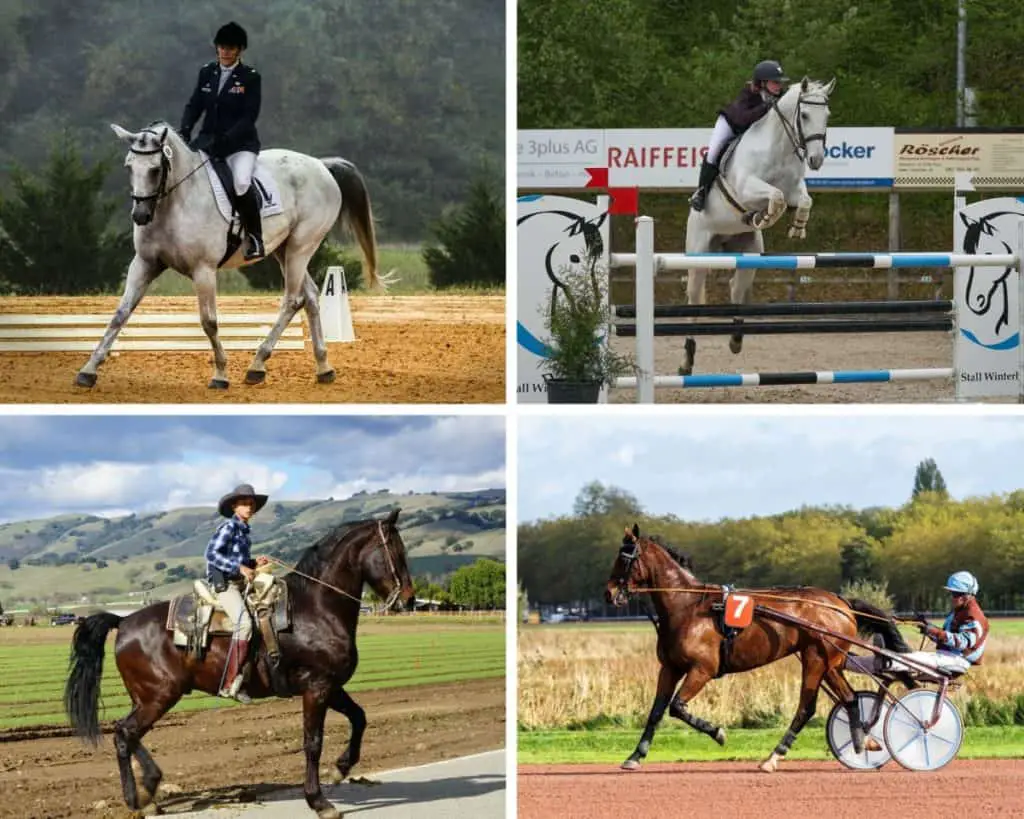Horseback riding is not just an enjoyable activity, but it also has a profound influence on discipline. At “http://horsebackridingdude.com/”, a blog dedicated to all things horseback riding, you can find comprehensive and engaging content that delves into the different perspectives of this sport. The website aims to not only provide reliable information but also resonate with the interests of the audience. Whether you’re an experienced rider or someone who is yet to saddle up, this blog is determined to offer topics that captivate and engage readers. By exploring the relationship between horseback riding and discipline, readers can gain valuable insights into how this equestrian pursuit can shape their character and instill vital life skills. So, strap on your riding boots and get ready for an exhilarating journey through the world of horseback riding.
The Benefits of Horseback Riding for Discipline
Discipline is an essential skill that can greatly impact various aspects of our lives. One activity that has been recognized for its ability to enhance discipline is horseback riding. Whether you are a beginner or an experienced rider, the act of riding a horse requires a significant amount of discipline and can provide numerous benefits that extend beyond the stables. In this article, we will explore the various ways in which horseback riding can contribute to the development of discipline and the positive impact it can have on our lives.
Improved Focus and Concentration
One of the key benefits of horseback riding for discipline is the improvement in focus and concentration. When you are on a horse, you need to be fully present and engaged in the activity. Riding requires your undivided attention as you navigate the movements of the horse and respond to its cues. This heightened focus can transfer to other areas of your life, such as work or studies, where concentration is crucial for success.
Development of Patience and Perseverance
Horseback riding also helps in the development of patience and perseverance. Horses are intelligent animals with their own personalities and may require time and patience to build a trusting relationship. Additionally, mastering riding skills takes time and practice. Through challenges and setbacks, riders learn to persevere and continue their efforts, ultimately achieving their goals. This perseverance can be applied to other areas of life, where patience and determination are necessary for success.
Enhanced Responsibility and Accountability
Taking responsibility and being accountable for one’s actions is another important aspect of discipline that horseback riding can teach us. When riding, you are not only responsible for your own safety but also for the well-being of the horse. Learning to care for the horse, following safety guidelines, and being aware of your actions and their impact on the horse are essential aspects of responsible riding. This sense of responsibility and accountability can be transferred to other areas of life, fostering discipline and conscientiousness.
Building Self-Discipline
Self-discipline is a quality that can greatly contribute to personal growth and success. Horseback riding inherently requires self-discipline, as riders must follow instructions from instructors, maintain proper riding position and technique, and consistently practice and train. The ability to adhere to these guidelines and push oneself to improve requires a high level of self-discipline. Through horseback riding, individuals can strengthen their self-discipline and apply it to other aspects of their lives, such as managing personal goals or maintaining healthy habits.
Developing Emotional Control
Emotional control is an important aspect of discipline that can greatly impact our interactions and overall well-being. Horseback riding provides an avenue for developing emotional control as riders learn to manage frustration, anger, fear, and anxiety. Dealing with the pressures of competition or simply navigating the challenges of riding requires riders to recognize their emotions and find ways to control and channel them effectively. This emotional control can positively influence how we handle various situations in our daily lives.
Promoting Goal Setting and Time Management
In horseback riding, setting goals and managing time efficiently are crucial for progress and development. Riders work towards specific riding skills, prepare for competitions or shows, and allocate time for regular training and practice. By practicing goal setting and time management in the context of horseback riding, individuals can develop these skills and apply them to other aspects of their lives. Whether it’s achieving personal goals, balancing responsibilities, or planning effectively, the discipline of goal setting and time management can lead to success in various endeavors.
Teaching Respect and Empathy
Respect and empathy are vital attributes that contribute to harmonious relationships and positive interactions. Horseback riding teaches individuals to respect and empathize with horses, recognizing their needs, behavior, and well-being. By treating horses with care and kindness and building a bond of trust, riders develop a sense of respect and empathy that extends beyond the stables. This understanding and consideration for the needs of others can enhance our relationships and interactions with fellow humans as well.
Fostering Teamwork and Cooperation
Horseback riding often involves working with instructors, trainers, and other riders, fostering a sense of teamwork and cooperation. Instructors guide riders through lessons, and fellow riders can provide support and encouragement. Additionally, participating in group activities and exercises requires riders to take turns and work together towards a common goal. This collaborative environment encourages teamwork and cooperation, promoting discipline in terms of communication, coordination, and supporting others.
Instilling Confidence and Self-esteem
Confidence and self-esteem play a significant role in our personal growth and overall well-being. Horseback riding can contribute to the development of these qualities by providing a platform for achieving personal riding goals. As riders overcome challenges, improve their skills, and receive recognition for their efforts, their confidence and self-esteem soar. This newfound confidence can extend beyond the stables, positively impacting various aspects of life and enabling individuals to tackle challenges with resilience and self-assurance.
Cultivating Discipline in Other Areas of Life
Perhaps one of the most remarkable aspects of horseback riding for discipline is its ability to cultivate discipline in other areas of life. The skills and qualities acquired through riding, such as improved focus, patience, responsibility, self-discipline, emotional control, goal setting, respect, teamwork, and confidence, can all be transferred to different areas of our lives. Whether it’s applying focus and concentration at work or studies, utilizing self-discipline in managing time and tasks, or practicing respect and empathy towards others, the discipline cultivated through horseback riding can lead to a more disciplined and balanced life overall.
How Horseback Riding Enhances Focus and Concentration
Practicing Mindfulness on Horseback
Horseback riding provides a unique opportunity to practice mindfulness. While riding, it is essential to be fully present in the moment, paying complete attention to the movements of the horse and the environment. This requires riders to let go of distractions and focus their minds solely on the task at hand. By practicing mindfulness during horseback riding, individuals can enhance their ability to focus and concentrate, carrying this skill into other areas of their lives.
Paying Attention to the Horse’s Movements
One of the key aspects of focus and concentration in horseback riding is paying attention to the horse’s movements. Horses communicate through their body language, and riders must be attuned to these subtleties to effectively navigate and communicate with their equine partners. By consistently observing and interpreting the horse’s movements, riders refine their ability to concentrate and respond appropriately. This heightened awareness can also translate into being more observant and responsive in other areas of life.
Staying Alert and Aware of the Surroundings
Horseback riding requires riders to be aware of their surroundings and anticipate any potential risks or challenges. This heightened alertness helps riders stay focused and attentive, ensuring their safety and the safety of their horse. By continually practicing this level of alertness during riding, individuals can enhance their overall ability to stay focused and aware in various situations, both inside and outside the stables.
Improving Reaction Time and Decision Making
Riding a horse demands quick reaction times and effective decision-making. Riders must react promptly to the horse’s cues, adjust their position and aids accordingly, and make split-second decisions to navigate obstacles or unexpected situations. This constant need for quick thinking and action helps sharpen reaction times and decision-making skills, improving overall focus and concentration. These skills can then be applied to other areas of life, where the ability to think on your feet and make sound decisions is crucial.
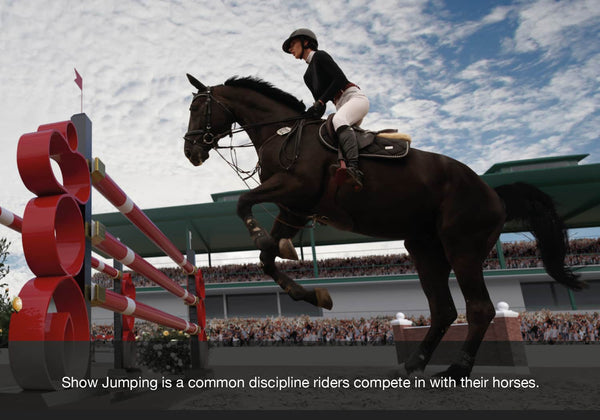
The Role of Patience and Perseverance in Horseback Riding
Learning to Wait for the Horse’s Response
Patience is a virtue that is continuously tested in horseback riding. Horses have their own individual personalities and may require time to process and respond to cues. Riders must patiently wait for the horse’s response and avoid rushing or becoming frustrated. This practice of patience not only increases the effectiveness of communication with the horse but also cultivates the ability to be patient in other areas of life, where waiting for desired outcomes or progress is necessary.
Dealing with Challenges and Setbacks
Horseback riding is not without its challenges and setbacks. Riders may face difficulties in mastering specific riding skills, encounter unexpected behavior from their horses, or experience setbacks in their progress. However, these challenges provide valuable opportunities to develop perseverance and resilience. By persistently working through challenges and setbacks, riders learn not to give up easily and to keep striving for improvement, qualities that are valuable for personal growth in all areas of life.
Continuing to Improve and Practice
Improvement in horseback riding is an ongoing process that requires dedication and consistent practice. Riders must commit to regular training sessions, lessons, and practice rides to enhance their skills and build a strong foundation. This commitment to continuous improvement and practice cultivates discipline and perseverance. It instills the understanding that growth and progress require consistent effort and dedication, which can be applied to various aspects of life beyond the stables.
Overcoming Fear and Developing Courage
For many riders, fear can be a significant obstacle to progress and growth. Horses are large animals, and the act of riding can be intimidating and even frightening for some. Overcoming fear requires immense courage and determination. As riders confront their fears and continue riding, they develop not only courage but also a greater sense of self-assurance. This newfound courage can spread to other areas of life, empowering individuals to face challenges head-on and step outside their comfort zones.
Taking Responsibility and Being Accountable in Horseback Riding
Learning to Care for the Horse
Horseback riding goes beyond just riding a horse; it includes the responsibility of caring for the horse’s well-being. Caring for a horse involves tasks such as grooming, feeding, and ensuring their overall health. By taking responsibility for the care of a horse, riders develop a sense of accountability and learn the importance of meeting the needs of another living being. This responsibility and accountability can then be extended to other relationships and obligations in their lives.
Following Safety Guidelines
Safety is of utmost importance in horseback riding, and riders must adhere to safety guidelines to ensure their well-being and that of the horse. This includes wearing appropriate safety gear, such as helmets and protective vests, following proper mounting and dismounting procedures, and practicing safe riding techniques. By consistently following safety guidelines, riders learn to prioritize their safety and demonstrate accountability for their own actions.
Being Aware of Personal Actions and Their Impact on the Horse
A crucial aspect of responsibility and accountability in horseback riding is being aware of how personal actions can impact the horse. Horses are intuitive animals and can pick up on emotions and cues from their riders. Riders must be mindful of their own behavior, remaining calm and composed to avoid negatively affecting the horse’s experience. This heightened awareness of personal actions and their impact fosters a sense of accountability and consideration for others, extending beyond the realm of horseback riding.
Taking Ownership of Mistakes and Learning from Them
Mistakes are an inherent part of any learning process, and horseback riding is no exception. Riders may make errors in judgment, misread cues, or simply have an off day. However, the ability to take ownership of these mistakes and learn from them is a vital aspect of discipline. By acknowledging their errors, riders can make the necessary adjustments and seek guidance to improve. This mentality of continuous learning, accepting responsibility, and growing from mistakes is a vital skill that can be applied to all areas of life.
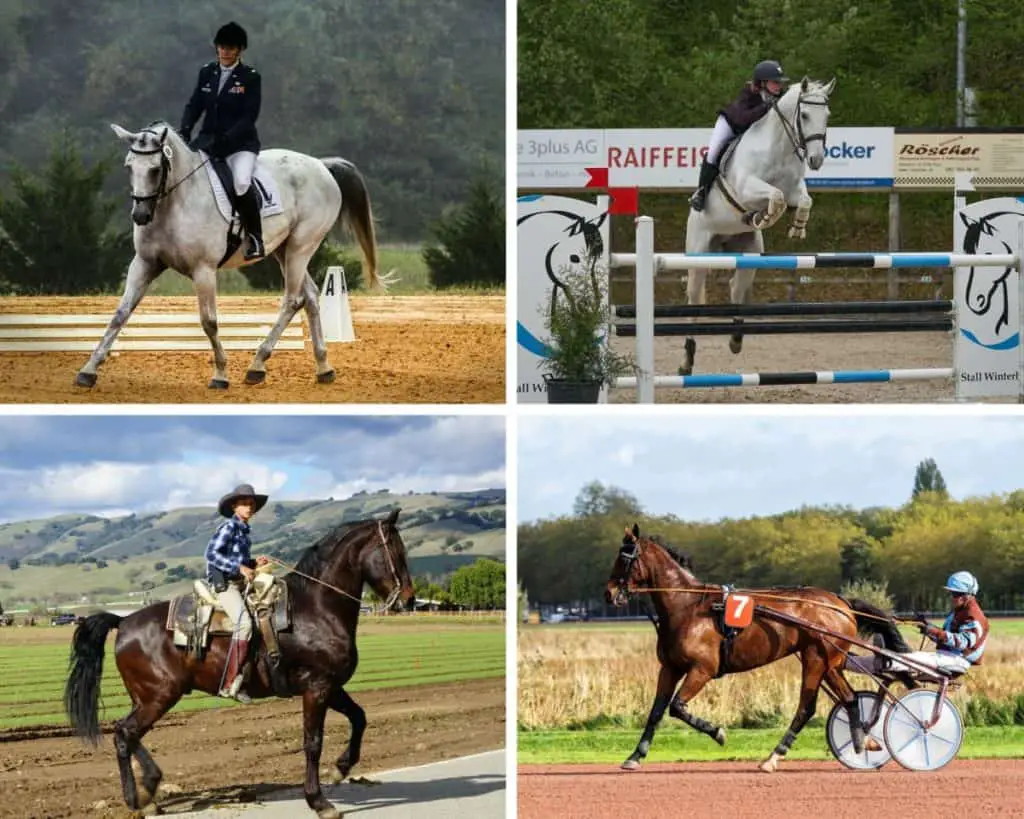
Developing Self-Discipline through Horseback Riding
Following Instructions from Instructors
In the world of horseback riding, instructors play a crucial role in guiding and mentoring riders. Following instructions from instructors requires self-discipline and the willingness to trust and respect their expertise. By consistently following instructions, riders develop the ability to listen attentively, process information, and execute the necessary actions. This self-discipline in following instructions is invaluable for success in various areas of life, from workplace tasks to personal projects.
Maintaining Proper Riding Position and Technique
Proper riding position and technique are vital for effective communication with the horse and maintaining balance and control. Riders must discipline themselves to maintain the correct position, engage the appropriate muscles, and execute the required aids precisely. This discipline in maintaining proper riding position and technique instills habits of self-discipline and attention to detail that can positively impact other areas of life where precision and accuracy are necessary.
Consistently Practicing and Training
Riders who aspire to excel in horseback riding understand the importance of consistent practice and training. Self-discipline is required to commit to regular training sessions, even on days when motivation may be lacking. By consistently practicing and training, riders reinforce discipline as a part of their daily routine and develop resilience against setbacks or challenges. This dedication to consistent practice and training translates into the ability to develop and improve skills in other areas of life.
Taking Responsibility for Personal Progress
Progress and growth in horseback riding ultimately rest in the hands of the rider. Self-discipline plays a critical role in taking ownership of personal progress. Riders must set goals, evaluate their strengths and weaknesses, and actively work towards improvement. This self-driven approach to personal progress fosters self-discipline as riders learn to hold themselves accountable for their own growth. This level of self-discipline can then be applied to personal and professional goals outside of horseback riding.
Emotional Control and its Importance in Horseback Riding
Managing Frustration and Anger
Emotional control is crucial in horseback riding, particularly when faced with challenges or difficulties. Frustration and anger can hinder effective communication with the horse and impede progress. Riders must learn to manage these emotions and maintain composure, channeling them into positive energy and focus. This ability to manage frustration and anger not only benefits riders in the context of horseback riding but also enables them to navigate challenging situations with greater ease and clarity in their daily lives.
Dealing with Competition and Pressure
Competing in horseback riding can be intense and pressurizing. Riders may face high expectations, the stress of performance, and the competitive nature of the equestrian world. Emotional control becomes paramount in such situations. Being able to manage feelings of anxiety, nervousness, or self-doubt allows riders to compete at their best and focus on their performance. This capacity to handle competition and pressure extends to other areas of life where one may encounter similar high-stakes environments.
Recognizing and Controlling Fear or Anxiety
Fear and anxiety are common emotional responses in horseback riding, especially for beginners or riders dealing with previous negative experiences. Overcoming and managing fear and anxiety is a significant part of developing emotional control. Riders must recognize these emotions, understand their origins, and work towards conquering them. This ability to recognize and control fear or anxiety impacts individuals beyond the stables, enabling them to confront fears and anxieties in different aspects of life.
Building Trust and Connection with the Horse
Building a trusting and connected relationship with the horse requires emotional control and sensitivity. Horses are highly perceptive animals that respond to their rider’s emotions. Developing emotional control allows riders to build trust and connection with their horses, creating a harmonious partnership. This emotional connection with the horse can teach riders greater empathy and understanding, qualities that extend beyond horseback riding and contribute to successful relationships in various contexts.
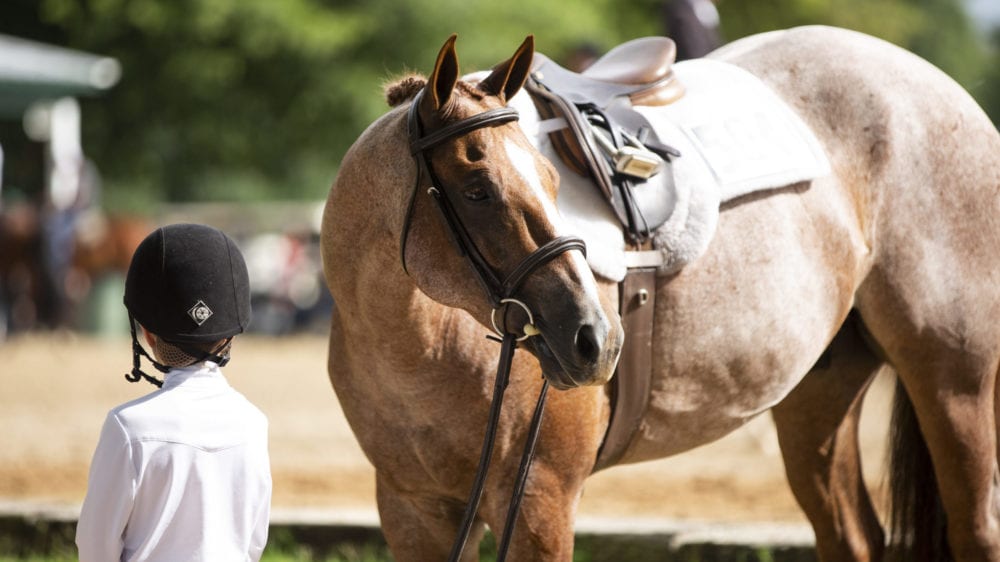
Setting Goals and Managing Time in Horseback Riding
Working Towards Specific Riding Skills
Setting goals is a fundamental part of any disciplined pursuit. In horseback riding, riders often set goals to work towards specific riding skills. This could involve mastering a particular gait, improving jumping technique, or competing at a certain level. By setting these goals, riders develop discipline in their training routine and allocate time and effort towards achieving these milestones, leading to personal growth and progress.
Preparing for Competitions or Shows
Competitions and shows provide opportunities for riders to test their skills and showcase their abilities. To perform at their best, riders must manage their time effectively to allocate ample practice and preparation. This entails discipline in creating training schedules, focusing on the necessary skills, and ensuring physical and mental readiness for the event. The discipline of managing time for competition preparation can then be applied to other areas of life where effective time management is crucial.
Allocating Time for Regular Training and Practice
Consistency is key in horseback riding, and allocating time for regular training and practice is essential. Disciplined riders commit to regular lessons, training sessions, and practice rides to hone their skills and improve their riding abilities. This level of dedication and time management not only leads to progress in horseback riding but also instills discipline in managing time for other commitments, ensuring a balanced approach to various responsibilities.
Balancing Riding with Other Responsibilities
Horseback riding requires a significant investment of time and energy, but it must also be balanced with other responsibilities. Disciplined riders learn to manage their time and strike a balance between their riding pursuits and other commitments, such as work, studies, or family obligations. Finding this balance demonstrates discipline in prioritization and time management, leading to a well-rounded and disciplined approach to life.
Respect and Empathy towards Horses in Horseback Riding
Understanding the Needs and Behavior of Horses
Respect and empathy towards horses begin with a genuine understanding of their needs and behavior. Disciplined riders take the time to study and learn about horses, their natural instincts, and their needs for physical and mental well-being. This understanding allows riders to meet the horses’ needs appropriately and with consideration, building a foundation of respect and empathy that extends beyond horseback riding.
Treating Horses with Care and Kindness
Discipline in horseback riding involves treating horses with care and kindness. Riders with a sense of respect and empathy understand the importance of gentle handling, proper grooming, and appropriate tack and equipment usage. They prioritize the horses’ comfort and well-being, ensuring they are treated with compassion and consideration. This disciplined approach to care reflects a broader sense of responsibility towards all living beings.
Building a Bond and Trust with the Horse
Building a bond and trust with a horse is a testament to the respect and empathy a rider possesses. Disciplined riders take the time to establish a connection with their horses, understanding that trust is earned through consistent and respectful interactions. This dedication to building a bond and trust builds character and extends beyond the stables, influencing how riders approach and nurture relationships with others.
Recognizing Horses as Partners, not Just Tools
Respecting and empathizing with horses require recognizing them as partners rather than mere tools or vehicles for riding. Disciplined riders understand that horses are sentient beings with their own thoughts, emotions, and preferences. By acknowledging and valuing the horse as a partner, riders exhibit discipline in their mindset and approach, fostering a sense of mutual respect and cooperation that can be reflected in their interactions with others.
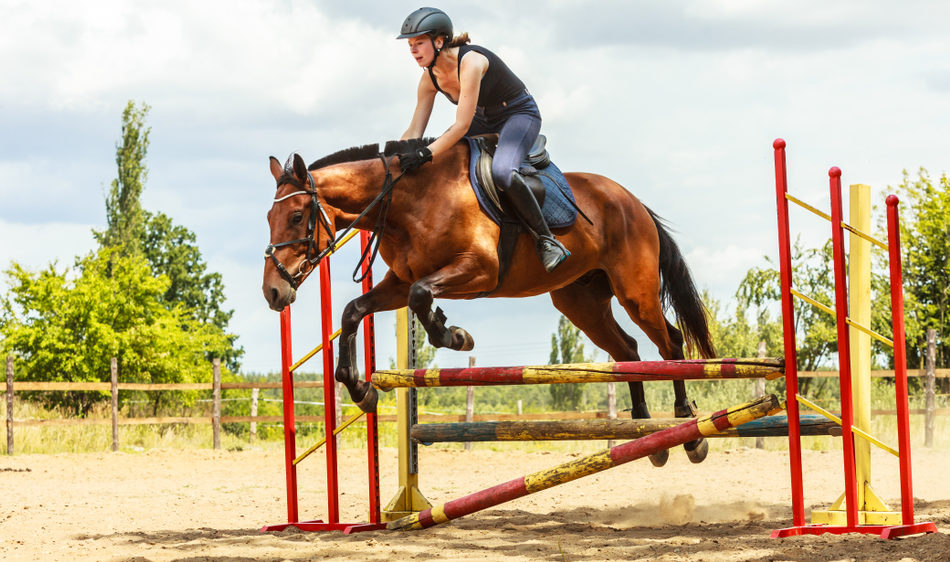
Teamwork and Cooperation in Horseback Riding
Working with Instructors and Trainers
In horseback riding, instructors and trainers play a crucial role in guiding and supporting riders. Collaboration with instructors and trainers requires teamwork and cooperation. Disciplined riders actively participate in lessons, listen to instructions, and value the expertise of their mentors. They understand that teamwork with instructors leads to progress and growth, demonstrating discipline in their willingness to learn from others and work towards shared goals.
Collaborating with Other Riders
Horseback riding often involves group activities and exercises where collaboration with other riders is necessary. From riding in pairs to participating in relay races or team exercises, riders must work together towards a common goal. This collaboration fosters a sense of teamwork and cooperation, as riders learn to communicate effectively, delegate responsibilities, and support one another. Disciplined riders value the importance of teamwork and develop the skills necessary for successful collaboration.
Taking Turns in Group Activities and Exercises
Teamwork and cooperation in horseback riding also involve taking turns and sharing opportunities. In group activities and exercises, riders must demonstrate discipline by patiently waiting for their turn and respecting the opportunities given to others. By understanding the value of taking turns, riders cultivate discipline in patience, selflessness, and adaptability, qualities that contribute to successful teamwork in various contexts.
Supporting and Encouraging Fellow Riders
Support and encouragement play a vital role in fostering a positive and motivating environment in horseback riding. Disciplined riders actively support and encourage their fellow riders, recognizing that everyone is on their unique journey of growth and improvement. By providing guidance, cheering on others’ achievements, and offering a helping hand, disciplined riders contribute to an atmosphere of camaraderie and teamwork. This ability to support and encourage others demonstrates discipline in compassion and collaboration.
Building Confidence and Self-esteem through Horseback Riding
Achieving Personal Riding Goals
Horseback riding provides numerous opportunities for riders to achieve personal goals, whether it’s mastering a particular skill, competing at a higher level, or conquering fears and insecurities. The process of setting and achieving these goals builds confidence and self-esteem. Disciplined riders understand the importance of setting realistic goals, dedicating themselves to the necessary practice and training, and celebrating their achievements. This journey to personal success strengthens confidence and self-esteem, empowering riders in all aspects of their lives.
Overcoming Fear and Developing Trust
Fear is a common hurdle in horseback riding, and overcoming it requires immense courage and determination. Disciplined riders face their fears head-on, pushing through their comfort zones and working towards developing trust with their horses. As riders conquer their fears and develop a bond of trust, their confidence soars, and their self-esteem builds. This enhanced confidence translates into greater resilience and belief in oneself, impacting various areas of life beyond horseback riding.
Receiving Recognition for Improvements
Recognition for improvements is another crucial factor in building confidence and self-esteem. In horseback riding, disciplined riders receive feedback and recognition for their progress from instructors, trainers, and even fellow riders. These acknowledgments of improvement reinforce their confidence and validate their efforts, boosting their self-esteem. The confidence gained through these moments of recognition carries over into other endeavors, encouraging disciplined riders to strive for excellence and celebrate achievements in different facets of life.
Building a Strong Sense of Achievement
Accomplishments in horseback riding, whether big or small, contribute to a strong sense of achievement. Disciplined riders understand the value of hard work, discipline, and perseverance in their pursuit of success. Each milestone reached, each challenge overcome, and each personal goal achieved fuels a sense of accomplishment and reinforces their discipline. This heightened sense of achievement impacts an individual’s confidence, resilience, and determination in all areas of their life’s endeavors.
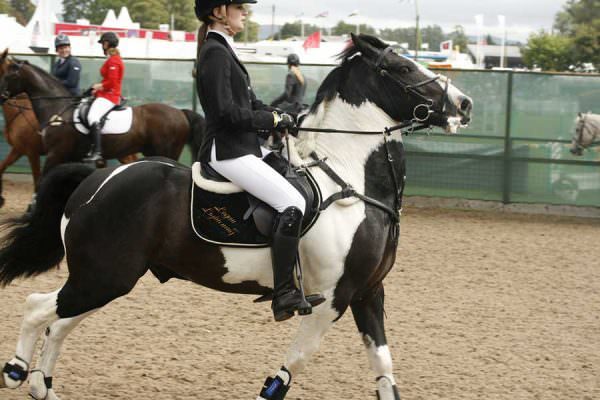
Transferring Discipline Skills from Horseback Riding to Daily Life
Applying focus and concentration to work or studies
The focus and concentration developed through horseback riding can be invaluable in academic or professional settings. The ability to stay fully engaged in tasks, remove distractions, and focus on the task at hand leads to enhanced productivity and performance. Disciplined riders can transfer their ability to concentrate to academic pursuits, work projects, problem-solving, and other areas that demand sustained focus.
Using patience and perseverance in personal goals
The patience and perseverance cultivated in horseback riding can be transferred to personal goals and aspirations. Whether it’s learning a new skill, pursuing a hobby, or working towards personal growth, disciplined riders understand the importance of dedication and consistent effort. This translates into resilience and determination when faced with challenges or setbacks while pursuing personal goals, increasing the likelihood of success and personal fulfillment.
Taking responsibility and being accountable in relationships
Discipline in horseback riding instills a sense of responsibility and accountability that can positively impact relationships. Disciplined riders understand the importance of taking ownership of their actions, considering others’ needs, and communicating effectively. This discipline promotes healthy and respectful relationships, whether in personal, familial, or professional contexts, where responsibility and accountability are vital for growth and harmony.
Utilizing self-discipline in managing time and tasks
Effective time management is a cornerstone of discipline that riders learn through horseback riding. This skill can be applied to managing personal schedules, meeting deadlines, and prioritizing tasks in various aspects of life. Disciplined riders are adept at identifying priorities, allocating time efficiently, and maintaining a structured approach to their daily lives, leading to increased productivity, reduced stress, and improved overall well-being.
Practicing emotional control in stressful situations
Emotional control honed in horseback riding equips individuals with valuable skills for managing stressful situations beyond the stables. Disciplined riders can apply techniques such as deep breathing, mindfulness, and positive self-talk to regulate their emotions and maintain composure in stress-inducing scenarios. This emotional control facilitates effective decision-making and problem-solving while minimizing the detrimental effects of stress on physical and mental well-being.
Setting goals and planning in various aspects of life
The discipline of setting goals and planning, ingrained through horseback riding, can benefit all areas of life. Disciplined riders understand the power of clearly defined goals, actionable plans, and measurable progress. By applying these principles to personal, academic, professional, or health-related goals, individuals can experience greater motivation, focus, and achievement, leading to a sense of fulfillment and personal growth.
Showing respect and empathy towards others
The respect and empathy developed through horseback riding extend beyond interactions with horses. Disciplined riders understand the value of considering others’ perspectives, actively listening, and treating people with kindness and respect. By demonstrating genuine respect and empathy towards others, individuals can foster healthier relationships, resolve conflicts more effectively, and contribute to a more compassionate and empathetic society.
Working as a team and cooperating in different environments
Teamwork and cooperation, central to horseback riding, are skills that carry over into various environments. Disciplined riders value collaboration, effective communication, and the ability to navigate group dynamics. These skills are transferable to professional settings, community organizations, and personal relationships, where working harmoniously as part of a team is crucial for success and collective growth.
Boosting confidence and self-esteem in various endeavors
The confidence and self-esteem fostered through horseback riding have a far-reaching impact on various endeavors. Disciplined riders believe in their abilities, trust their judgment, and approach challenges with resilience. This heightened confidence translates into greater assertiveness, enhanced self-worth, and the motivation to pursue goals in different aspects of life, be it academics, professional pursuits, or personal relationships.
Living a disciplined and balanced life
Above all, the discipline cultivated through horseback riding can contribute to living a disciplined and balanced life. Disciplined riders understand the importance of taking care of their physical and mental well-being, managing commitments effectively, and maintaining a balanced approach to various responsibilities. By applying discipline across different areas of their lives, individuals can experience enhanced overall well-being, reduced stress, and increased personal fulfillment.
